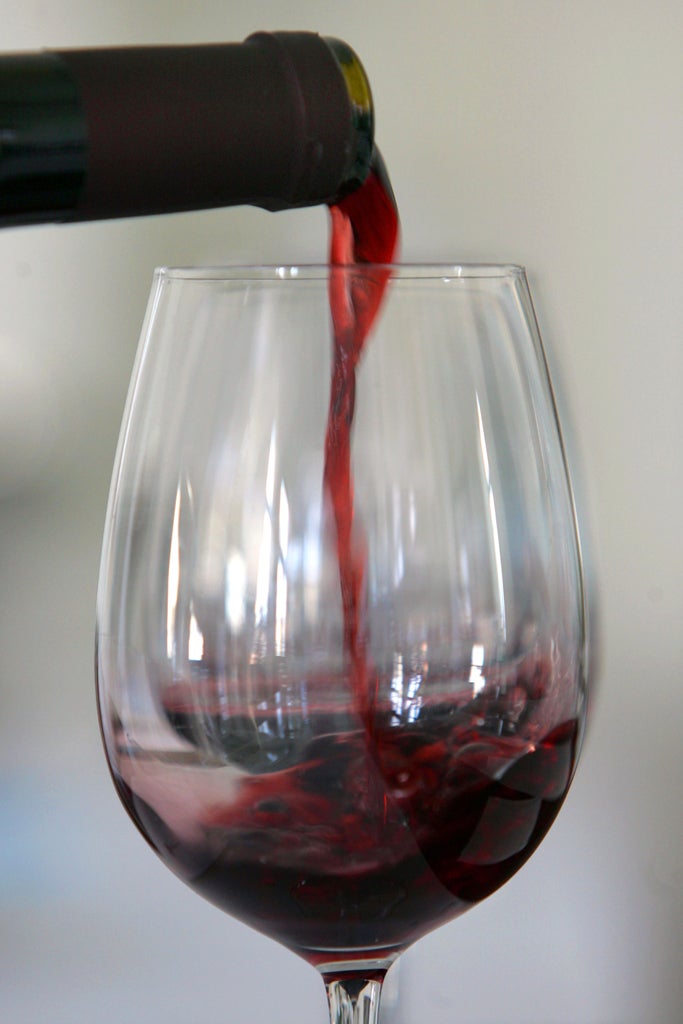Pregnant women told moderate drinking will not harm the baby

Drinking a small glass of wine every day while pregnant may do no harm to the brain development of babies in the womb, a new study suggests.
Drinking a small glass of wine every day while pregnant could do no harm to the brain development of babies in the womb, a new study has suggested, reigniting the debate over how much women should consider safe to drink while expecting.
An extensive study of almost 7,000 ten year olds’ ability to balance – a key indicator of prenatal neurodevelopment – found that moderate drinking during pregnancy, of between three to seven units in a week, had no discernible harm on children’s neurological or cognitive function, as measured by ability to balance.
The findings add to growing evidence that moderate alcohol consumption while pregnant may in fact be safe, but are likely to prove controversial.
Drinking while pregnant has been linked to a number of problems including heart defects and learning and behaviour problems later in life. High alcohol consumption is universally considered dangerous, but experts disagree on how much should be considered a safe amount.
The NHS maintains a “precautionary principle”, recommending that women should not drink at all during pregnancy and if they do choose to, to limit consumption to just one or two units, once or twice a week. Britain’s chief medical officer is currently overseeing a review of longstanding guidelines on drinking while pregnant.
The new paper, published in online medical journal BMJ Open, looked at data on children born in the early 1990s who took part in a long-term health study in the south of England. They were tested on their ability to balance on a beam. Results were compared to information that their mothers had given about their drinking during pregnancy.
The children of mothers who reported low (between one and two glasses per week) and moderate (between three and seven glasses) alcohol consumption performed just as well as children whose mothers drank nothing at all.
Test subjects were drawn from the Avon Longitudinal Study of Parents and Children (ALSPAC), which has tracked the long-term health of 14,000 children born between 1991 and 1992.
The new paper reinforces the results of similar studies that looked at other measures, including children’s maths, reading and social and emotional skills.
In April, scientists analysing the findings of the Millennium Cohort Study, concluded that it did not seem “biologically plausible” that drinking two units per week could affect development in the womb.
However, Professor John Macleod, of the University of Bristol’s School of Social and Community Medicine, who worked on ALSPAC research, said that even children of women who had the equivalent of “a small glass of wine a day”, demonstrated no developmental defects – at least insofar as a balance test can demonstrate.
Dr Patrick O’Brien, from the Royal College of Obstetricians and Gynaecologists, said that the paper provided “further reassurance” about the risks of moderate drinking while pregnant, but that more research into long-terms effects was needed before advice to women could change.
Dr James Nicholls, Research Manager at Alcohol Research UK, which provided funding towards the study, said that the paper made “an important contribution” to the a “limited” evidence-base.
“Although [balance] is only one measure of neurodevelopment, it should not be disregarded,” he said. “The debate on advice to women in pregnancy is an important one, and many people will argue that the ‘precautionary principle’ of advising no alcohol at all should hold. However, while advice needs to be clear, we should also take note of evidence which points to the conclusion that small amounts of alcohol are not a significant risk.”
A spokesman for the Department of Health said: “The Chief Medical Officer is overseeing a review of alcohol guidelines. This will include reviewing any new evidence on alcohol and pregnancy.”
Janet Fyle, professional policy advisor at the Royal College of Midwives, said: “We recognise that this is useful research. However, there is also a large amount of evidence suggesting that the cumulative effects of alcohol consumption during pregnancy can harm the developing fetus. Our advice continues to be that for women who are trying to conceive or those that are pregnant it is best to avoid alcohol.”
Subscribe to Independent Premium to bookmark this article
Want to bookmark your favourite articles and stories to read or reference later? Start your Independent Premium subscription today.

Join our commenting forum
Join thought-provoking conversations, follow other Independent readers and see their replies